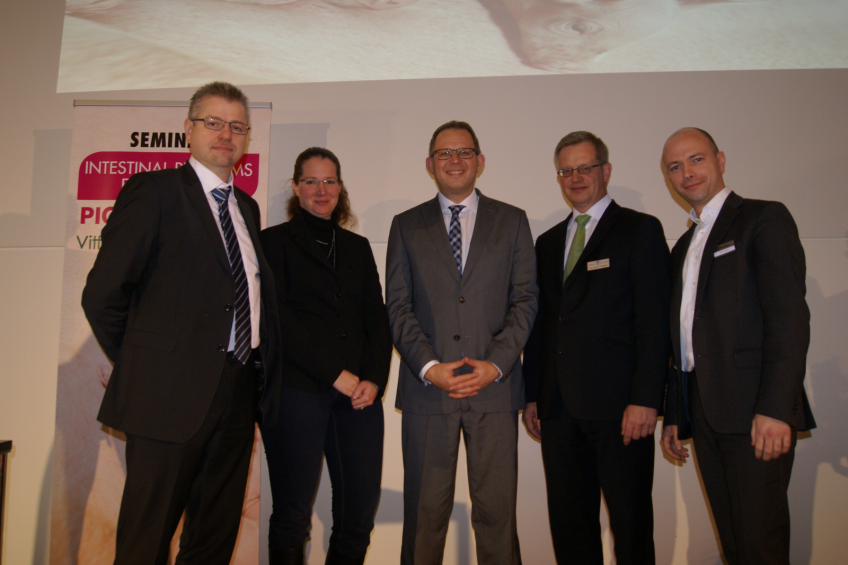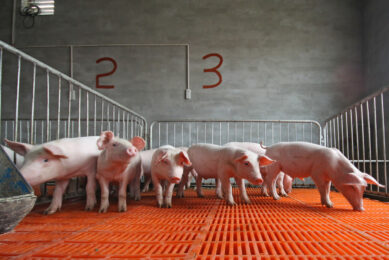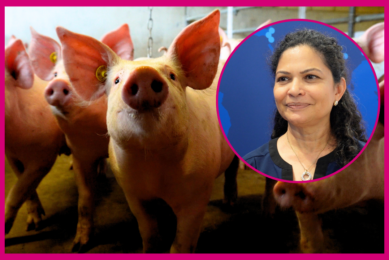5 major gut bugs for piglets – view the webinar

Which 5 gut pathogens are the most detrimental to piglet health? The answer was given at Pig Progress’ seminar/webinar ‘Intestinal problems for piglets’, held at EuroTier in Germany, on 16 November. Missed it? Here’s your chance to catch up.
In her presentation ‘Fragility of a piglet’s gut – Top-5 of gut health problems’, German veterinarian Doris Höltig dived deeper into this question. She is associated with the University of Veterinary Medicine in Hanover, Germany.
Before touching on the question of the 5 pathogens, she zoomed in on why piglets actually are most vulnerable for gut problems due to an immature gut system. She also looked at perinatal factors, and made a distinction between alimentary pathogenesis, infectious pathogenesis, secondary pathogenesis and combined pathogenesis.
The 5 most important pathogens she mentioned: E. coli, coronavirus, clostridia species, Isospora suis and Salmonella. Review the entire seminar/webinar if you like to know why and how.
Influencing gut health through feeding
The next speaker at the seminar/webinar was Jacob Dall of Vitfoss, Denmark. His presentation was titled ‘Influencing gut health through feeding’.
Key in his presentation was the functioning of the gut and how the feed composition can be better adapted to farm conditions, e.g. by fibre strategies, nutrient bearing components and certain bioactive substances.
Focus on prevention
Lars Sangill Andersen, from animal nutrition company Hamlet Protein, then zoomed in on the value of protein sources for piglets. He touched on soya being the most efficient soy source, but it also contains anti-nutritional factors.
With the company’s own optimising treatment of soy, these anti-nutritional factors are a thing of the past, making it more useful to be digested in a piglet’s gut.
Pathogenic pressure
The last speaker of this seminar/webinar was Geert Wielsma, on behalf of Swedish feed additives manufacturer Perstorp. He dived into the topic of weaning being a period with an increased exposure to pathogens – and the importance to quickly achieve a good balance in a piglet’s gut.
Acids form a part of the company’s portfolio and in his presentation he zoomed in on butyric acid. The company markets tributyrin – a butyric acid bound to glycerol and he explained how this feed additive can help prevent gut problems.











